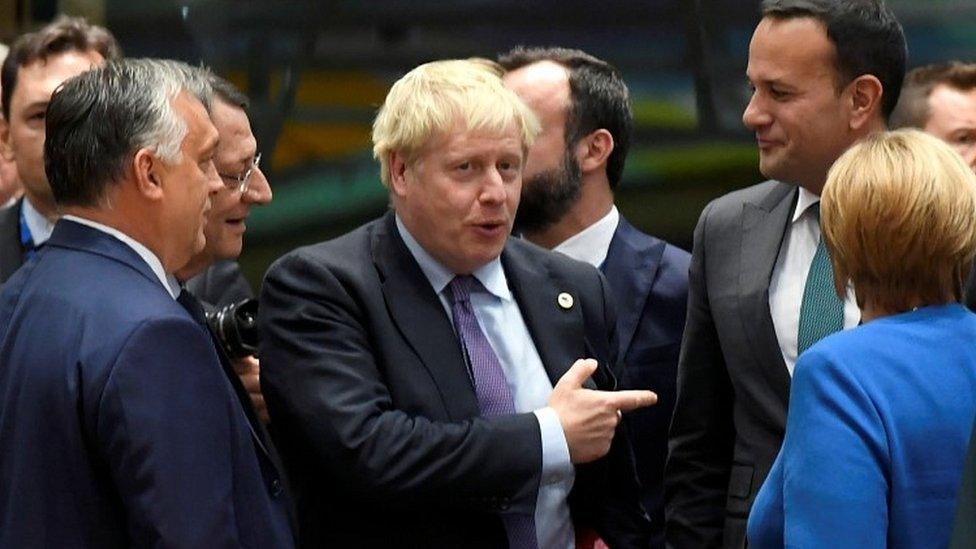Johnson still facing an almighty gamble
- Published

He did it. They did it.
Boris Johnson and his team, who beat the odds in 2016, have overturned the conventional wisdom again.
The EU said they would not budge; their former Tory colleagues and the opposition colleagues said it was all a sham.
But after a breakneck set of negotiations, a deal's been struck and the rest of the continent gave way on the controversial backstop, the feature of the former agreement that did for Theresa May.
However, Mr Johnson had to cede some ground too, accepting that Northern Ireland will be treated differently to the rest of the UK and follow some EU rules and regulations, perhaps for good.
You can read all about the differences between this deal and the last one here.
There's no question that, for some Brexit purists and unionists too, it's a breach of some of the promises he made to them.
Mrs May's deal wasn't dead after all, but there to be altered. Northern Ireland and the rest of the country will be still united theoretically, but more different in some practices.
Sticking to those vows was ultimately much less important to Number 10 than just getting a deal.
But it's made the next stage an almighty gamble, because there is resistance from the prime minister's allies as well as the opposition, who will deplore this deal.
Mr Johnson has put his name on the dotted line in Brussels with absolutely no guarantee that it will pass through Parliament.
Downing Street is well aware of that. But they concluded that it was better to strike the agreement, better to try, better to risk it, than do nothing.
This prime minister might have made a career of taking risks, but this might be his most serious bet of all.
